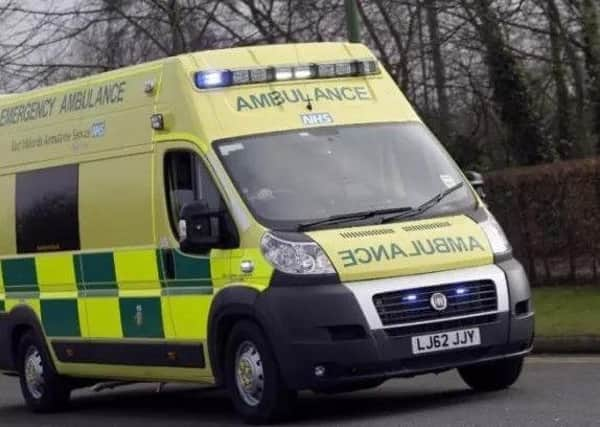Stroke patients wait longer than national average to get to hospital


The wait is much longer than the national average. However, the figures have been defended by experts, who stress that the priority was to take patients to a specialist stroke centre, even if that was further away than the nearest local hospital.
Alexis Kolodziej, of the Stroke Association, said: “The faster a stroke patient can receive specialist treatment, the more likely they will survive and recover.
Advertisement
Hide AdAdvertisement
Hide Ad“Evidence shows that patients get better treatment and have better outcomes when they can be taken by ambulance to a larger, comprehensive stroke centre of excellence.”
The statistics, released by NHS England, cover the latest monthly incident counts and response times for each of the ambulance services in the country.
In west Lincolnshire during August 2018, stroke patients had to wait an average of 89 minutes for the East Midlands Ambulance Service (EMAS) after calling 999. The national average was 71 minutes.
During the same month, the trust’s ambulances, which cover 22 Clinical Commissioning Groups (CCGs) in the East Midlands, helped a total of 663 patients who had an initial diagnosis of stroke.
Advertisement
Hide AdAdvertisement
Hide AdA spokesperson for West Lincolnshire CCG said: “We are working with colleagues at EMAS to ensure patients continue to be seen to and are transported to hospitals within clinically acceptable time-frames. High-quality care for our patients remains our top priority.”
Rich Hunter, ambulance operations manager for Lincolnshire at EMAS, said: “We endeavour to get all stroke patients to hospitals’ specialist units as quickly as possible.
“We will always take patients to the most appropriate hospital for the specialist treatment they require. The location of stroke units is determined by Clinical Commissioning Groups.”
STROKES are now the third biggest killer in the UK, causing more than 36,000 deaths each year.
Advertisement
Hide AdAdvertisement
Hide AdMany experts believe the emergency services should be giving strokes the same priority as heart attacks. Prof Nilesh Samani, medical director at the British Heart Foundation, said: “Pioneering treatments, which save lives and reduce disability, are increasingly available. But they are most effective when patients are treated as swiftly as possible.”